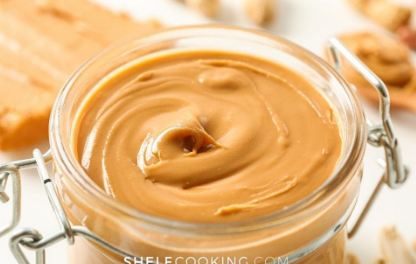Peanut butter offers a cost-effective and nutritious source of protein, along with healthy monounsaturated and polyunsaturated fats, according to Eat This. I
According to details, its nutritional profile contributes to a number of health benefits, supported by various studies.
– Supports weight management –
Peanut butter contains protein and fat, two macronutrients that digest more slowly than carbohydrates. Protein has shown effectiveness in lowering levels of ghrelin, a hormone associated with hunger. One study, published in the American Journal of Clinical Nutrition, reported that obese women who increased their protein intake by 15 per cent reduced their daily caloric consumption by 441 calories without deliberate dietary restrictions.
– Promotes heart health –
Peanuts provide coenzyme Q10 (CoQ10), an antioxidant linked to cardiovascular function. Research indicates that individuals with heart conditions experienced symptom improvement and reduced blood pressure when CoQ10 levels increased. Although the body produces this compound naturally, production decreases with age. Additionally, the high monounsaturated fat content in peanut butter may help lower low-density lipoprotein (LDL) cholesterol, thereby reducing the risk of heart disease and stroke.
Helps preserve muscle mass
Testosterone levels typically decline from the age of 30, often resulting in a loss of lean muscle tissue, a condition known as sarcopenia. Increased protein intake, particularly from sources such as nuts, eggs and fish, alongside strength training, can help mitigate this loss. Owing to its protein content, peanut butter serves as a suitable snack before or after physical activity to support muscle maintenance.
– Relieves muscle discomfort linked to statin use –
Statin medications, used to reduce cholesterol, may cause mild to moderate muscle soreness. Physicians often recommend CoQ10 supplements to address this issue. Peanut butter, as a source of CoQ10, may offer similar benefits. Including it as part of a balanced diet could help reduce statin-related discomfort.
– Provides high protein yield –
Peanut butter contains 22.21 grams of protein per 100 grams, compared with 24.85 grams in the same amount of steak. It also delivers a broader range of micronutrients, including calcium, magnesium, phosphorus, potassium, copper, vitamins B1 and B3, and folate. While it contains 51 grams of fat per 100 grams—more than steak—the majority are unsaturated fats considered beneficial for health.
– Lowers chronic inflammation –
Peanuts are a source of magnesium, a mineral associated with lower inflammation levels. A 2022 meta-analysis found that magnesium supplementation led to a measurable decrease in C-reactive protein (CRP), a liver-produced marker linked to chronic inflammation.
– Helps stabilise blood sugar –
Natural peanut butter, free from added sugar, ranks low on the glycaemic index. Its combination of protein, fat and fibre helps to slow the absorption of carbohydrates into the bloodstream. As such, it may support better blood sugar control, particularly for individuals managing diabetes.

















